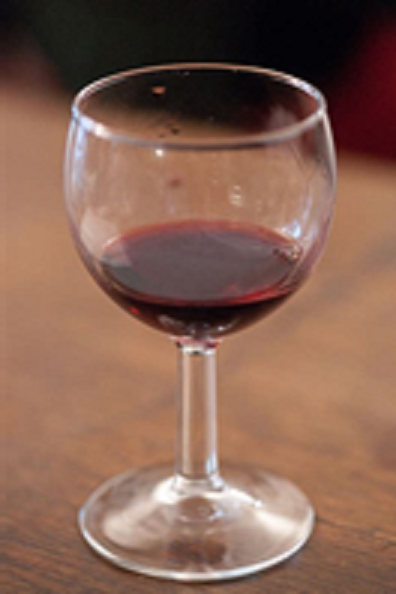 The Sunna reports that Muḥammad (~) forbade all alcoholic drink; on its side the Koranic text speaks only of the product of the vine: “They ask you about wine and the maysir. Say: ‘In the two the sin is much greater than the utility’” (sura “The heifer” 2, 219). That this may be well known and demonstrated today, the maysir is a biblical word [1] that designates the product of the grape other than wine (and not a game of chance): all that is grape is haram according to the Koran for it would be less useful than harmful. Note that there is no question of whiskey or beer; many interpret this absence of precision as a license: it would be forbidden to drink in public, but not at home. Why should wine be harmful? We must also read the verse that declares that wine will flow abundantly in Heaven (sura “Muḥammad (~)” 47,15) – and there too there is no question of other alcoholic drinks. Would wine alone be evil on earth and good in Heaven? In the Bible wine and the maysir are forbidden to those who vow themselves to God, the nazirs (Numbers 6, 1-3). The sura “The heifer” addresses precisely those “vowed to God” (“those who have emigrated” s. 2, 218) in making them abstain from wine and maysir, but in view of what? In the Bible, the superabundance of wine evokes the last times (Amos 9, 13-14; Joel 4, 18; Isaiah 25, 6).
The Sunna reports that Muḥammad (~) forbade all alcoholic drink; on its side the Koranic text speaks only of the product of the vine: “They ask you about wine and the maysir. Say: ‘In the two the sin is much greater than the utility’” (sura “The heifer” 2, 219). That this may be well known and demonstrated today, the maysir is a biblical word [1] that designates the product of the grape other than wine (and not a game of chance): all that is grape is haram according to the Koran for it would be less useful than harmful. Note that there is no question of whiskey or beer; many interpret this absence of precision as a license: it would be forbidden to drink in public, but not at home. Why should wine be harmful? We must also read the verse that declares that wine will flow abundantly in Heaven (sura “Muḥammad (~)” 47,15) – and there too there is no question of other alcoholic drinks. Would wine alone be evil on earth and good in Heaven? In the Bible wine and the maysir are forbidden to those who vow themselves to God, the nazirs (Numbers 6, 1-3). The sura “The heifer” addresses precisely those “vowed to God” (“those who have emigrated” s. 2, 218) in making them abstain from wine and maysir, but in view of what? In the Bible, the superabundance of wine evokes the last times (Amos 9, 13-14; Joel 4, 18; Isaiah 25, 6).
Jesus said in the course of his Last Supper: “I tell you I shall not drink again of this fruit of the vine until that day when I drink it new with you in my Father’s kingdom” (Matthew 26, 29). Which kingdom? We know that some groups of ex- Judeo-Christians forbade wine because of these words of Jesus – thus long before Islam [2]. The great objection against the salvation of Jesus is that Evil is always there, it has not disappeared from the earth. These groups of ex-Judeo-Christians had not understood that the power of Satan (Shaytan) on the world is first of all spiritual; we do not struggle against a fallen angel with weapons and soldiers, but with justice and sacrifice. When Jesus said that he would not drink wine any more, it was not to forbid it, but to indicate that he was going to pass by death to “destroy him who has the power of death, that is, the devil, and deliver all those who through fear of death were subject to lifelong bondage” (Hebrews 2, 14-15). If we are not branched on Jesus (like the branches on the vine), how can we escape the power of the one who sows death, even if we believe we are fighting against him? Besides, do we serve God by hating the other and by sowing death (sura “The Table” 5, 33)?
The good news is that the “eucharistic” wine (the Sacred Mysteries, in Aramean “Encounter-Qourbana”) makes us participate in the victory over Shaytan and brings even now to each believer life in our person (John 6, 53); but to discover it, we must first have passed by the purification that the water of Baptism brings. This is much more than to read a holy book, it is a union of heart to heart, a common life with the Word of God. But each aspires also that this Life be not only present in his little person but given to the entire world. For whom is the Kingdom of God? Al-Massih will transform this Life into a worldwide ladder at his glorious Second Coming.